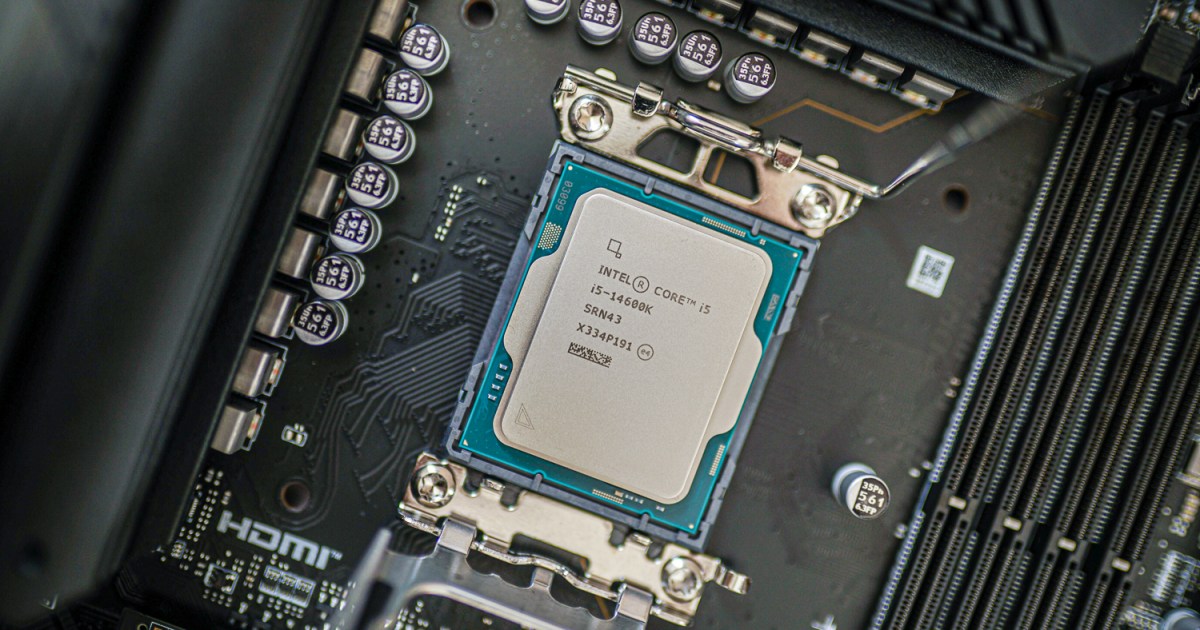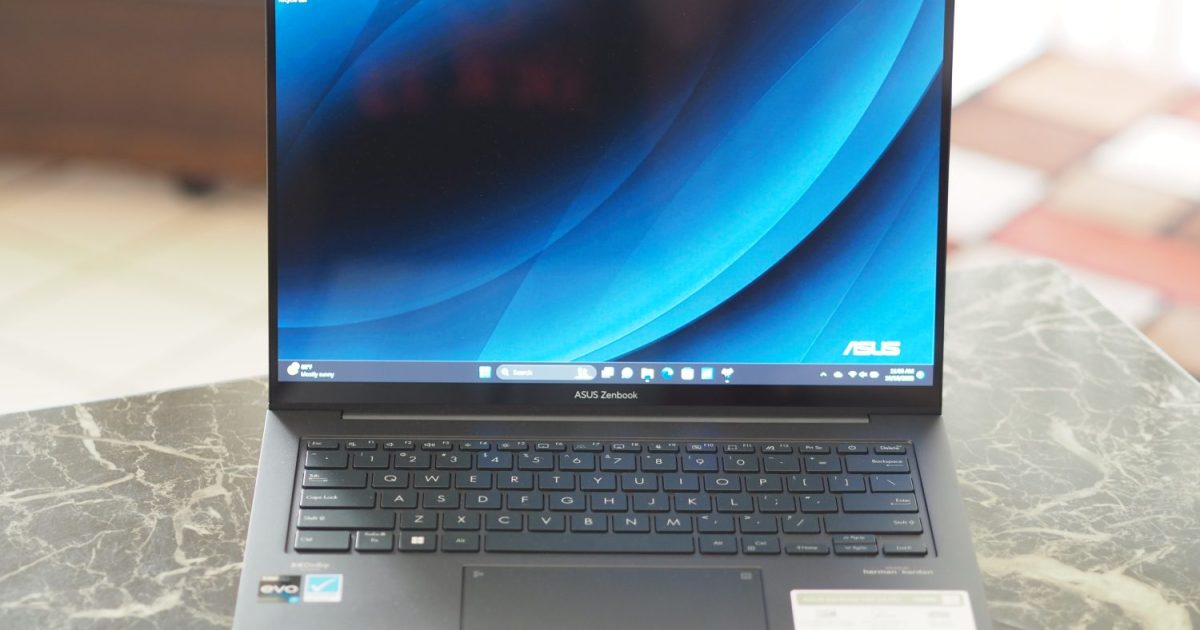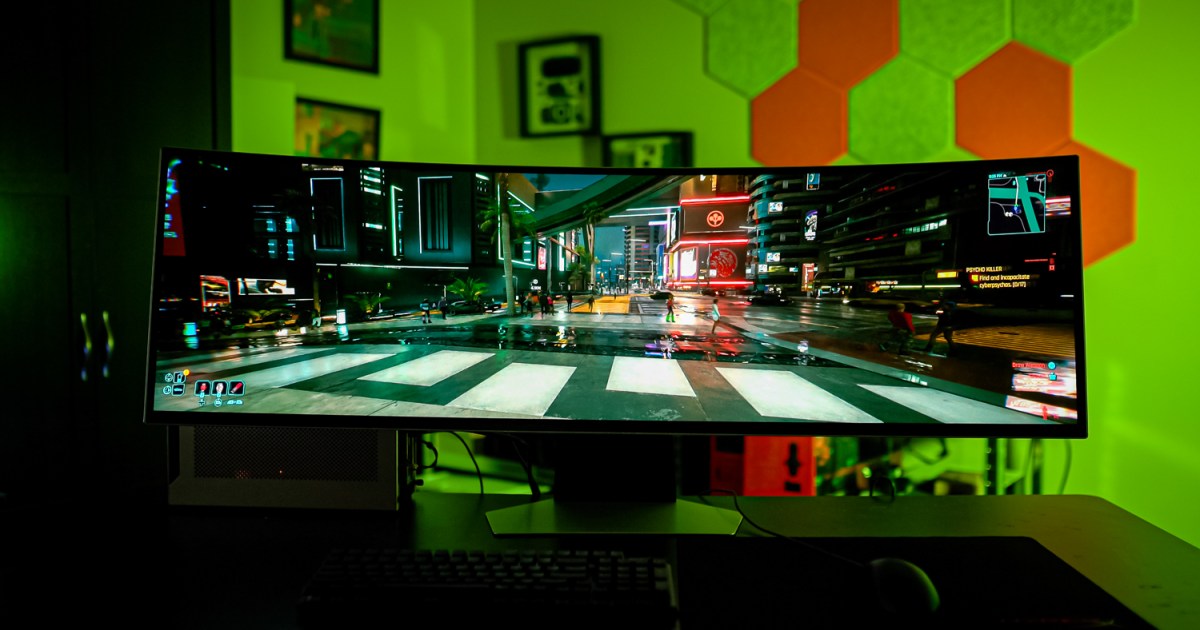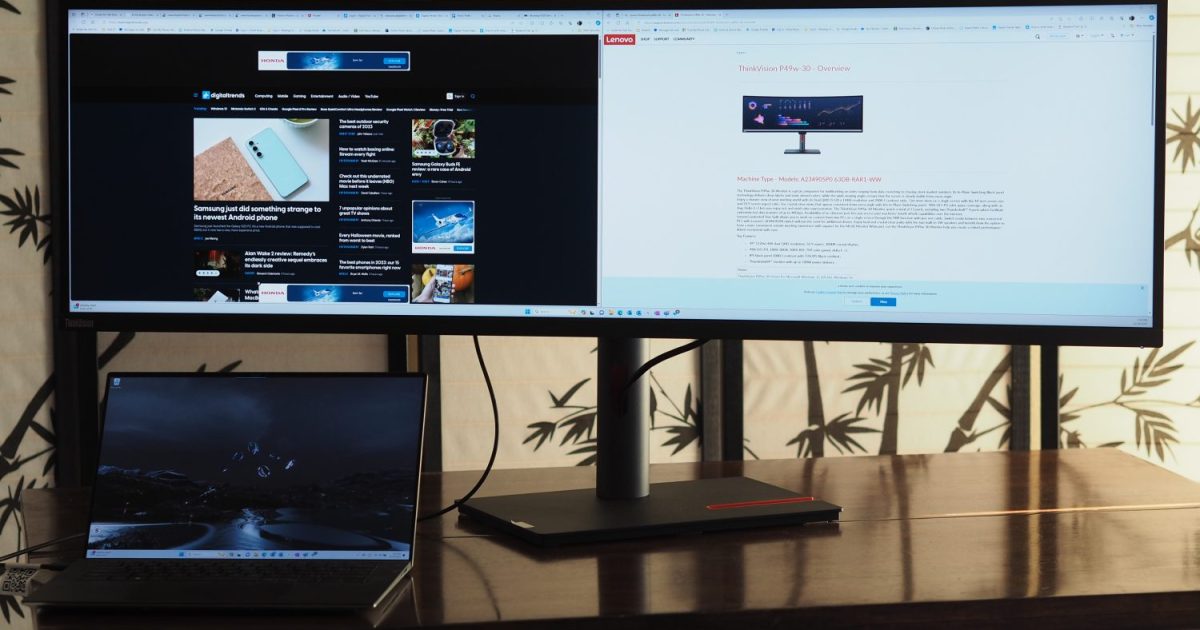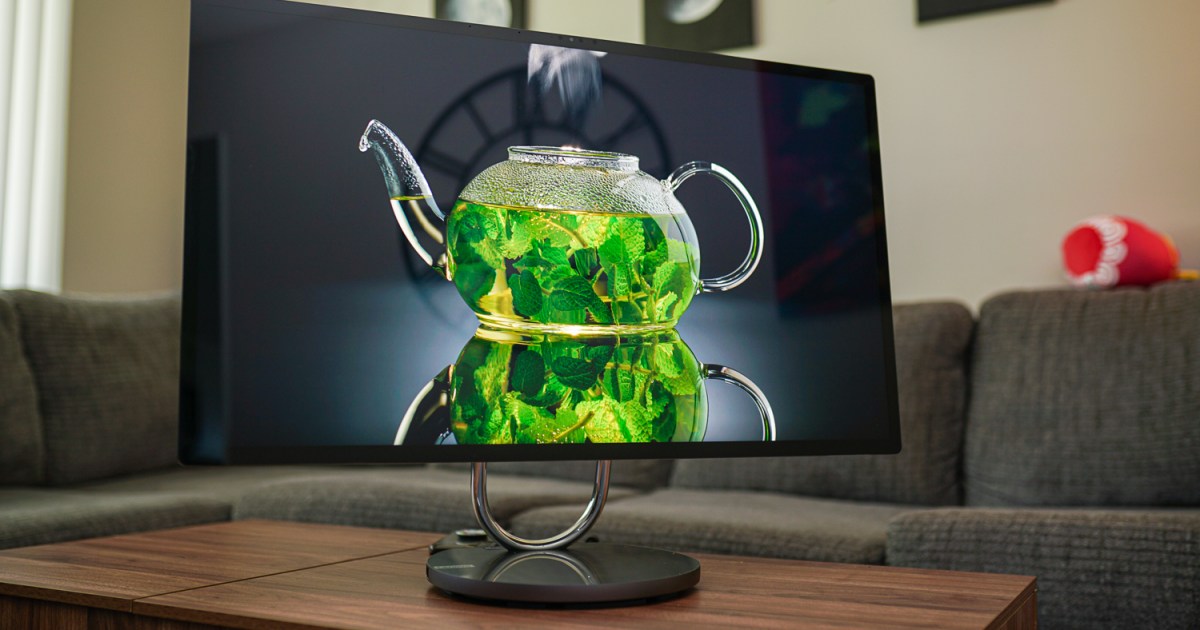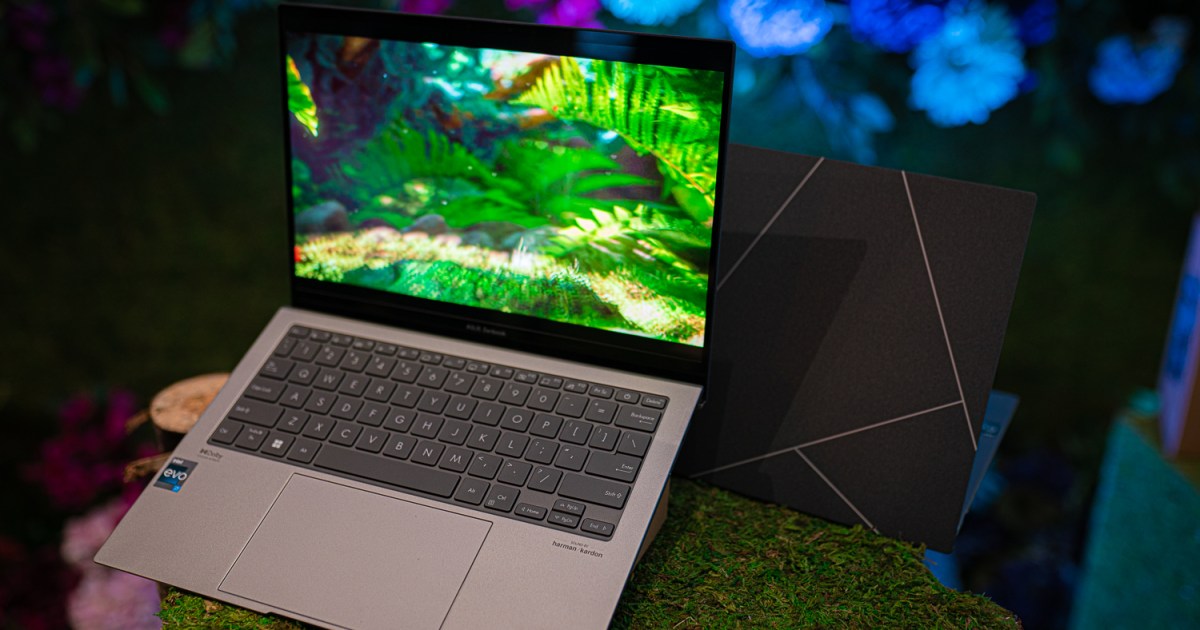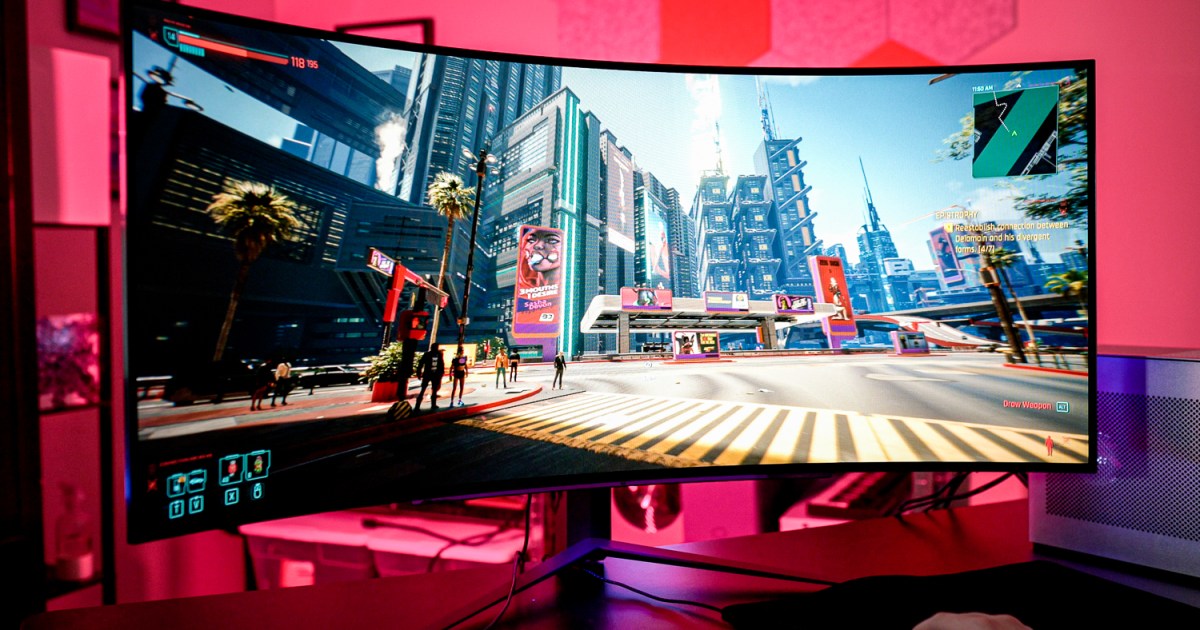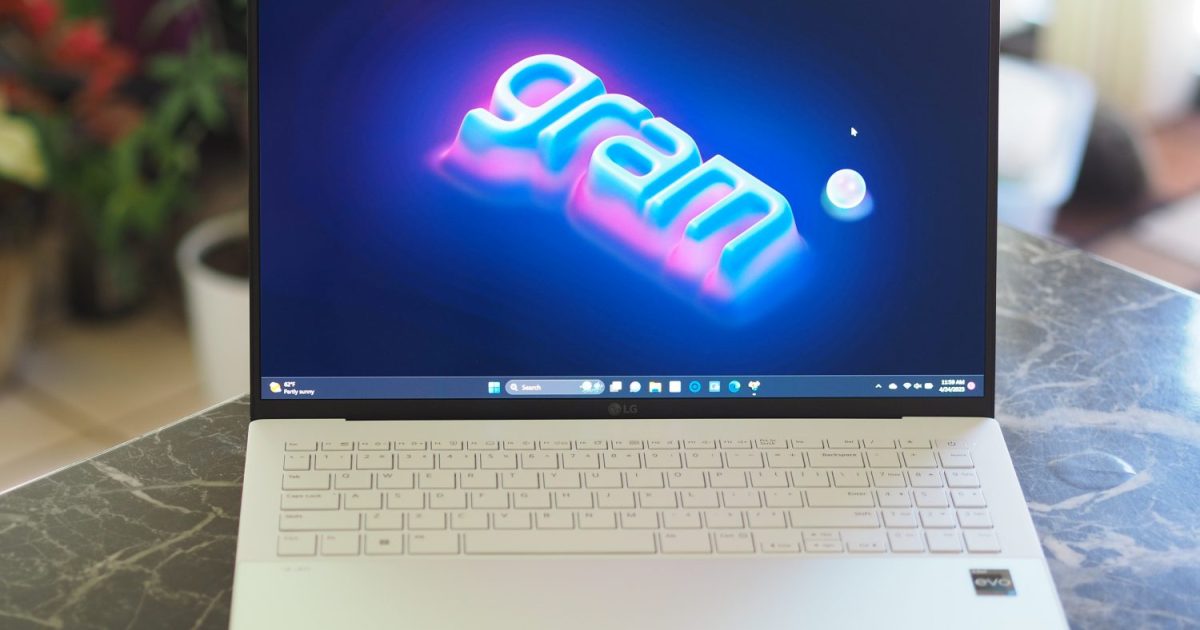Intel’s new Core i9-14900K and Core i5-14600K offer a performance bump, but don’t expect a revolutionary leap. While they solidify Intel’s position in the CPU market, they primarily close the performance gap with AMD’s gaming-focused chips rather than establishing a new standard. The question remains: do they offer enough value compared to previous-generation processors and AMD’s competitive offerings?
Intel’s 14th-gen processors deliver enhanced performance, but it’s crucial to understand that these aren’t groundbreaking upgrades. Their value proposition depends heavily on pricing, especially considering the performance offered by last-gen Intel and AMD Ryzen chips.
Specifications and Architecture
The Core i9-14900K and Core i5-14600K share striking similarities with their 13th-gen predecessors. Using the same Intel 7 process and LGA1700 socket, these “Raptor Lake refresh” CPUs boast only a slightly increased maximum clock speed.
| Feature | Core i9-14900K/KF | Core i7-14700K/KF | Core i5-14600K/KF |
|---|---|---|---|
| Cores/Threads | 24 (8+16) / 32 | 20 (8+12) / 28 | 14 (6+8) / 20 |
| L3/L2 Cache | 36MB / 32MB | 33MB / 28MB | 24MB / 20MB |
| Max Turbo Frequency | 6GHz | 5.6GHz | 5.3GHz |
| Base/Turbo Power | 125W / 253W | 125W / 253W | 125W / 181W |
| Recommended Price | $590 | $410 | $320 |
Intel’s focus with the 14th-gen seems to be optimization within their existing architecture. While the increased clock speeds contribute to performance gains, software optimizations like the AI-powered Extreme Tuning Utility (currently exclusive to the i9-14900K) and Intel Application Optimization for select games play a significant role. Platform improvements like higher DDR5 speeds are also noteworthy.
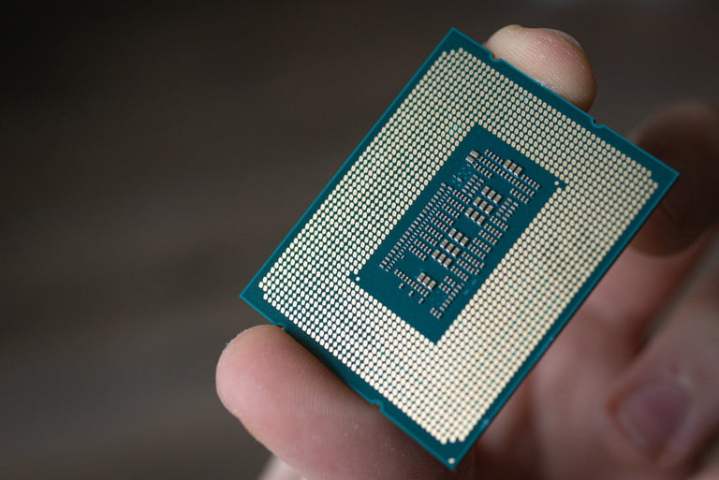 Close-up of CPU pins.
Close-up of CPU pins.
Benchmark Setup and Methodology
Testing was conducted on two configurations: one for AMD’s Zen 4 platform and another for Intel’s LGA1700. BIOS settings were default except for XMP (Intel) and EXPO (AMD) enabled, along with Resizeable Bar on both.
| Component | AMD Platform | Intel Platform |
|---|---|---|
| GPU | Nvidia RTX 4080 Founders Edition | Nvidia RTX 4080 Founders Edition |
| RAM | 32GB Gigabyte Aorus DDR5-6000 | 32GB Corsair Vengeance DDR5-6000 |
| Motherboard | Gigabyte X670E Aorus Master | MSI MPG Z790 MAG Tomahawk |
| CPU Cooler | Corsair H150i Elite Capellix | Corsair H150i Elite Capellix |
| Power Supply | Gigabyte Aorus P1200W | MSI MPG A850GF |
| Storage | Corsair MP400 1TB | MSI M450 1TB |
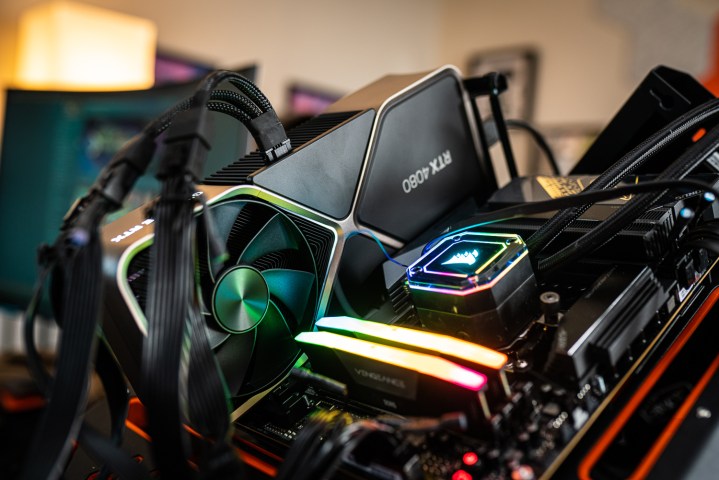 RTX 4080 in a test bench.
RTX 4080 in a test bench.
Productivity Performance
While Cinebench R23 multi-core scores showed minor regressions or stagnation compared to the 13th-gen, real-world applications painted a different picture. Handbrake encoding times improved slightly, further solidifying Intel’s lead over AMD in this area.
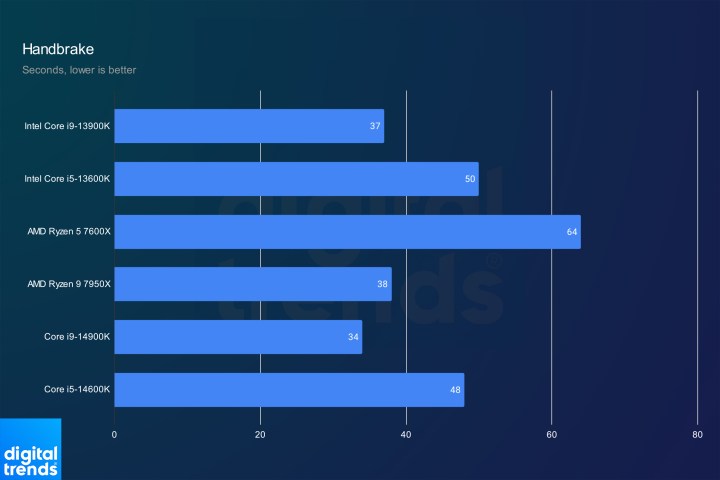 Handbrake benchmark results.
Handbrake benchmark results.
Blender performance remained largely unchanged, with AMD retaining a significant advantage. However, GPU acceleration often mitigates this difference in practical use. In Y-Cruncher and 7-zip, the 14th-gen chips demonstrated notable improvements, particularly in 7-zip compression where Intel significantly closed the gap with AMD.
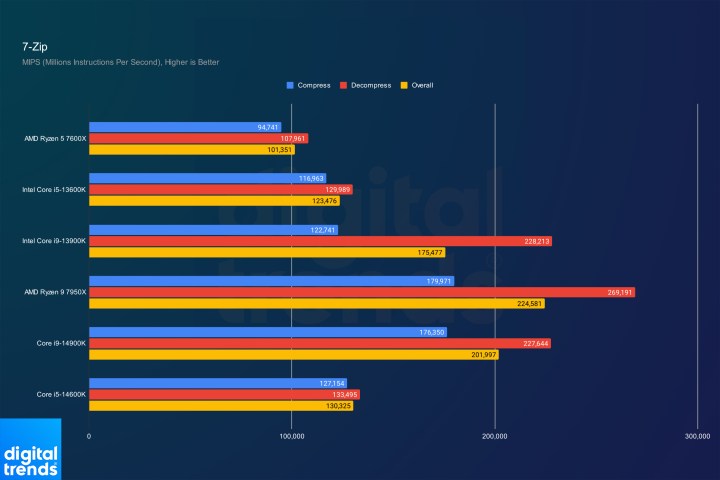 7-zip benchmark results.
7-zip benchmark results.
The 14th-gen excelled in the Jetstream 2 web benchmark, with the i9-14900K achieving the highest score recorded. Overall, the 14th-gen shows incremental improvements and closes the gap with AMD in some areas, but largely maintains the performance profile of its predecessor.
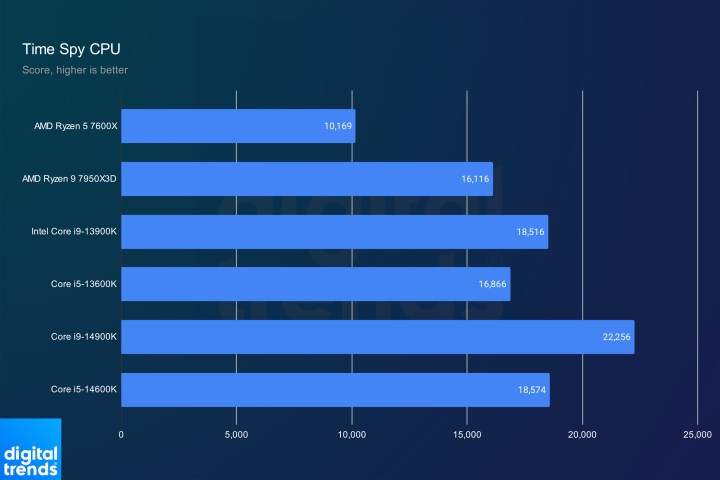 Jetstream 2 benchmark results.
Jetstream 2 benchmark results.
Gaming Performance
While Intel aimed to reclaim gaming performance leadership with the 14th-gen, AMD’s 3D V-Cache CPUs remain dominant. Although 3DMark Time Spy results heavily favored Intel, real-world game tests showed a more nuanced picture.
 3DMark Time Spy benchmark results.
3DMark Time Spy benchmark results.
In Hitman 3, the i9-14900K showed a 10% improvement over the 13th-gen, but still trailed the Ryzen 9 7950X3D. The i5-14600K proved competitive with the Ryzen 7 5800X3D, a significant achievement for Intel’s mainstream offering. Larger gains were observed in Far Cry 6 and F1 2022, with the i9-14900K even surpassing the Ryzen 9 7950X3D in F1 2022. However, as GPU load increases with higher resolutions and settings, these differences diminish, as seen in Red Dead Redemption 2.
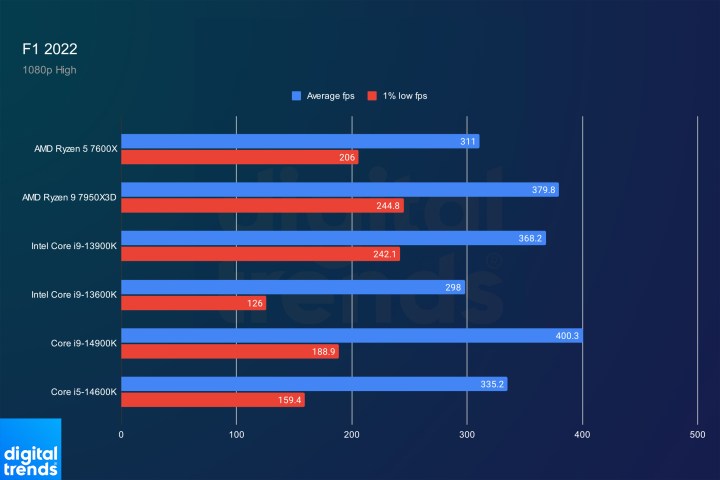 F1 2022 benchmark results.
F1 2022 benchmark results.
While the 14th-gen delivers improved gaming performance, AMD’s 3D V-Cache CPUs, especially when considering their current market prices, remain a compelling choice for gamers.
Power and Thermals
The performance gains in the 14th-gen come at the cost of efficiency. AMD still holds a clear advantage in performance per watt. Temperatures remain manageable, although slightly higher for the i9-14900K compared to the Ryzen 9 7950X3D under gaming workloads.
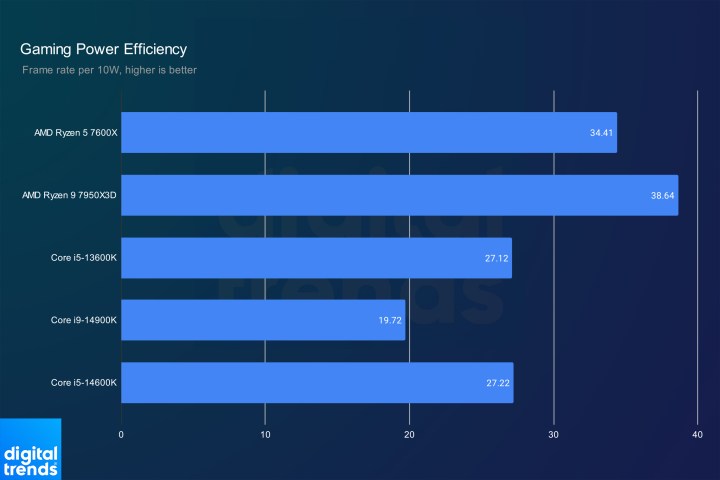 Gaming efficiency benchmark results.
Gaming efficiency benchmark results.
Conclusion
Intel’s 14th-gen CPUs offer tangible performance improvements over their predecessors, but the value proposition is complex. While they offer compelling performance, especially for those upgrading from older platforms, the discounted prices of 13th-gen Intel and AMD Ryzen 7000X3D chips offer strong competition.
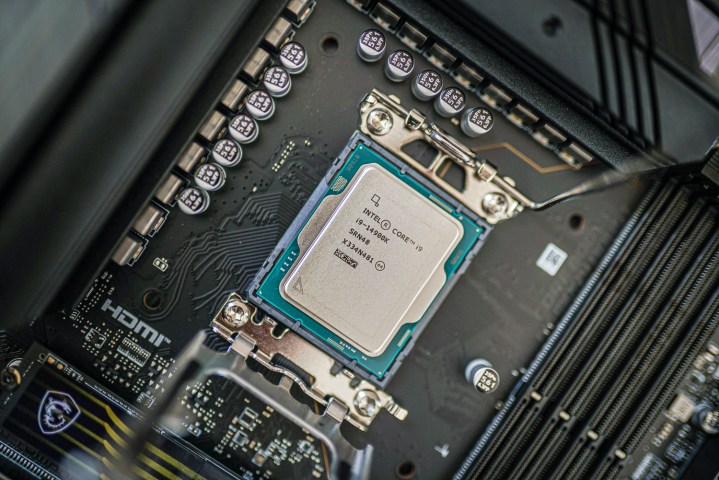 Close-up of a CPU.
Close-up of a CPU.
With Intel’s 15th-gen Arrow Lake processors on the horizon, the 14th-gen represents a solid, albeit incremental, upgrade, best suited for those seeking immediate performance gains and willing to pay a premium. For budget-conscious buyers or those willing to wait, the current market offers attractive alternatives.



